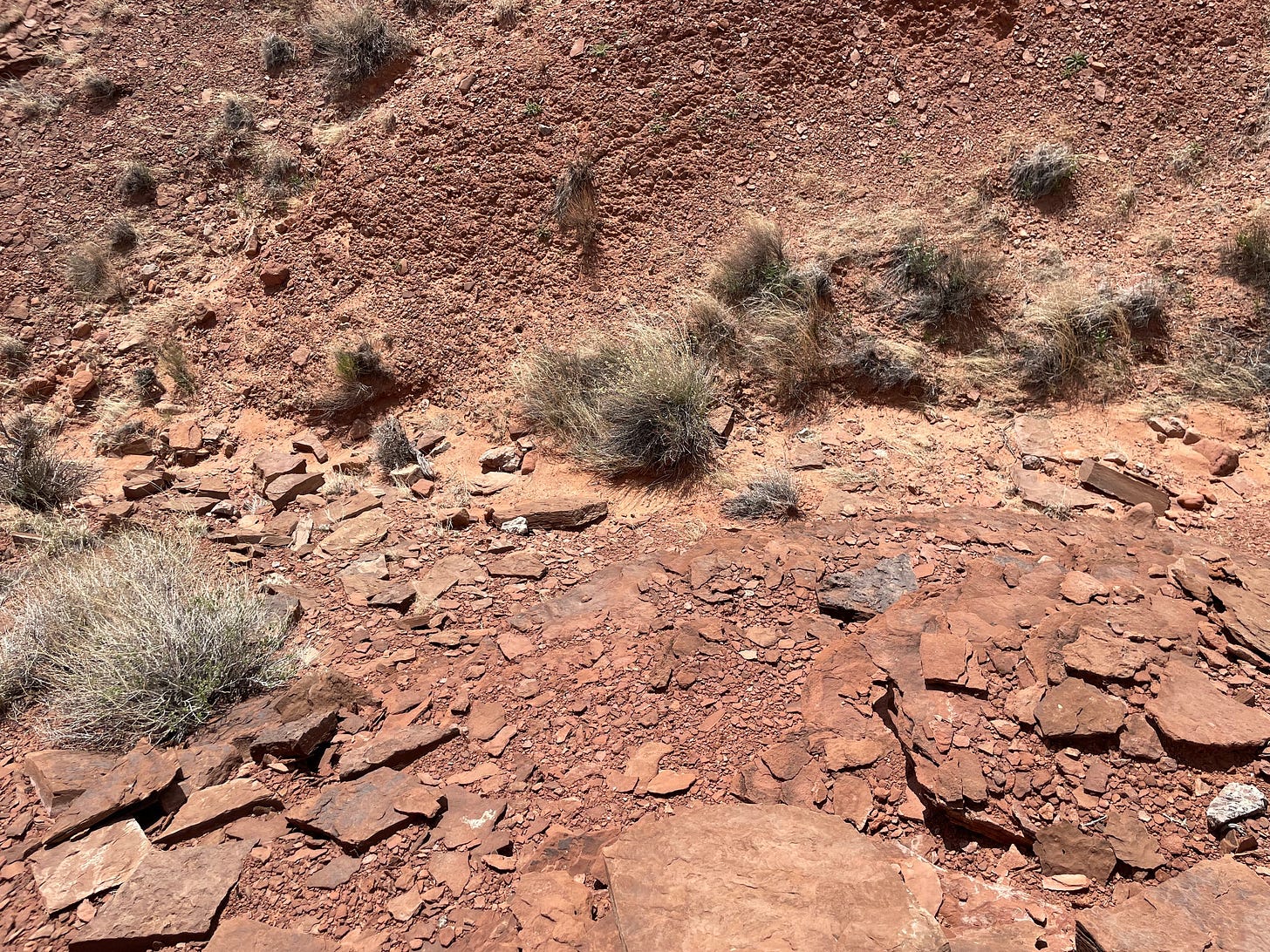I wasn’t always a climate pessimist. At first, I didn’t know anything at all about global climate change.
In 2000, at the Washington State Department of Health, I saw my first professional presentation on climate change. I remember that it was terrifying. I remember maps showing catastrophic projected sea-level rise overwhelming the East Coast, sinking New York City and Washington DC. I remember the presentation ended, people left, others re-opened the shades to let the light back in. I leaned back in my seat and took a breath, letting the magnitude of the approaching disaster almost sink in. Then I blinked, shook off the fear, and thought, “That is nuts. That guy is nuts. This whole idea is ridiculous.” And I went about my day.
From Denial to Nihilism
To be fair to my young, climate-denier self, we had just made it through the panic of Y2K, with, thankfully, no planes falling out of the sky, no society-stalling computer glitches, no need for the dry beans I had dutifully stockpiled but did not know how to cook. I’d had learned that dire warnings don’t always come to pass. And, besides, I had already seen technology progress from cassette tapes to CDs to Napster. We were moving into a new century of continual progress. The World Trade Center still stood. Pandemics were the stuff of ancient history. No one had ever been bullied on social media. Our darkest days as a species were all behind us.
Nearly 25 years later, I’ve watched Al Gore get into a scissor lift to trace the line on his PowerPoint slide showing a staggering increase in carbon emissions. I’ve had a couple kids. I’ve had a career in environmental public health, which has given me the opportunity to learn some of the terrible ways we as a species have had an impact on the earth, our own habitat, and, consequently, our health. I’ve seen wildfire smoke turn our sky orange and our air unbreathable. I’ve seen record-setting high temperatures. And I’ve seen the flood that’s only supposed to come every 100 years come early, destroying crops, shutting down the freeway, killing livestock, and leaving the carcasses of cows stuck in trees. I’ve become a bit of a pessimist.
Across the planet, some of the impacts of climate change have already been devastating, and cannot be fixed—species gone extinct, land destroyed, towns run dry. I look at the models that predict future impacts of the changing climate, and they are just as terrifying as they were the first time I saw them.
Intellectually, I know that even though these impacts are bad, it’s not too late for us to work together to save what remains and create a better world. This should bring me hope, and sometimes it does.
When I despair, it’s not the climate models that get me there. It’s because I’ve started to wonder if we are really the people who can change the world to save the planet. We are people who throw away thousands of pounds of food while other people starve. We contaminate our own water and pollute the air we breathe. We go to war and commit atrocities against each other. The pessimist in me struggles to believe that we as a species can really get it together to save a dying world.
There are times I’m so pessimistic about our chances of saving the planet that I can go all the way to nihilism: Well, if this is the end, then nothing matters. And if nothing matters, I may as well just do what makes me and my family happy, never mind the impacts on the environment or other people. This nihilism keeps me from taking meaningful steps to change the world every bit as much as the climate denial of my youth did.
And I’m one of the lucky ones. So far, I’ve just been annoyed and inconvenienced by climate change. I haven’t actually lost anyone or anything due to climate change. It isn’t actually the planet or the climate or the devastation of storms or fire or floods that keeps me from acting.
What keeps me from acting is my despair.
This piece is part of my work on my upcoming book titled (for now) A Climate Pessimist Finds Hope. Please comment! Is there something here that makes you think, “well, yeah, but, what about….” Tell me about it! Do I use a particularly persuasive or not persuasive argument? Tell me before the bad stuff ends up in the book!
For more on the book see:





Lauren,
your writing resonates so much with me. But you put it into words so much better than I can. Keep on writing!
Therese